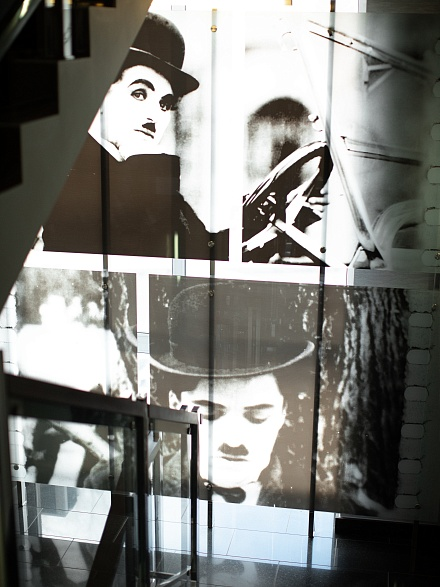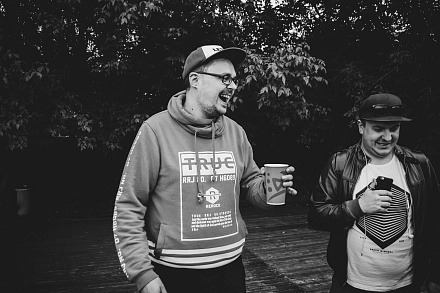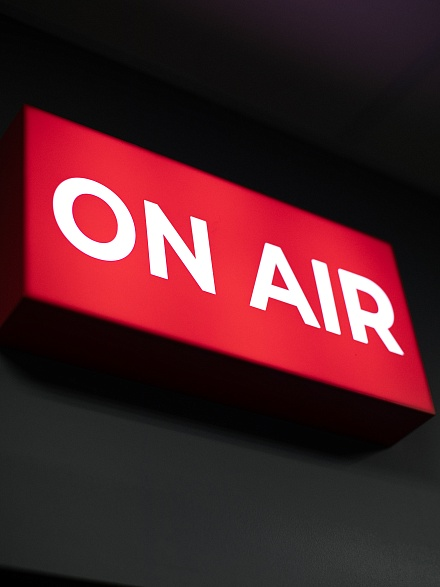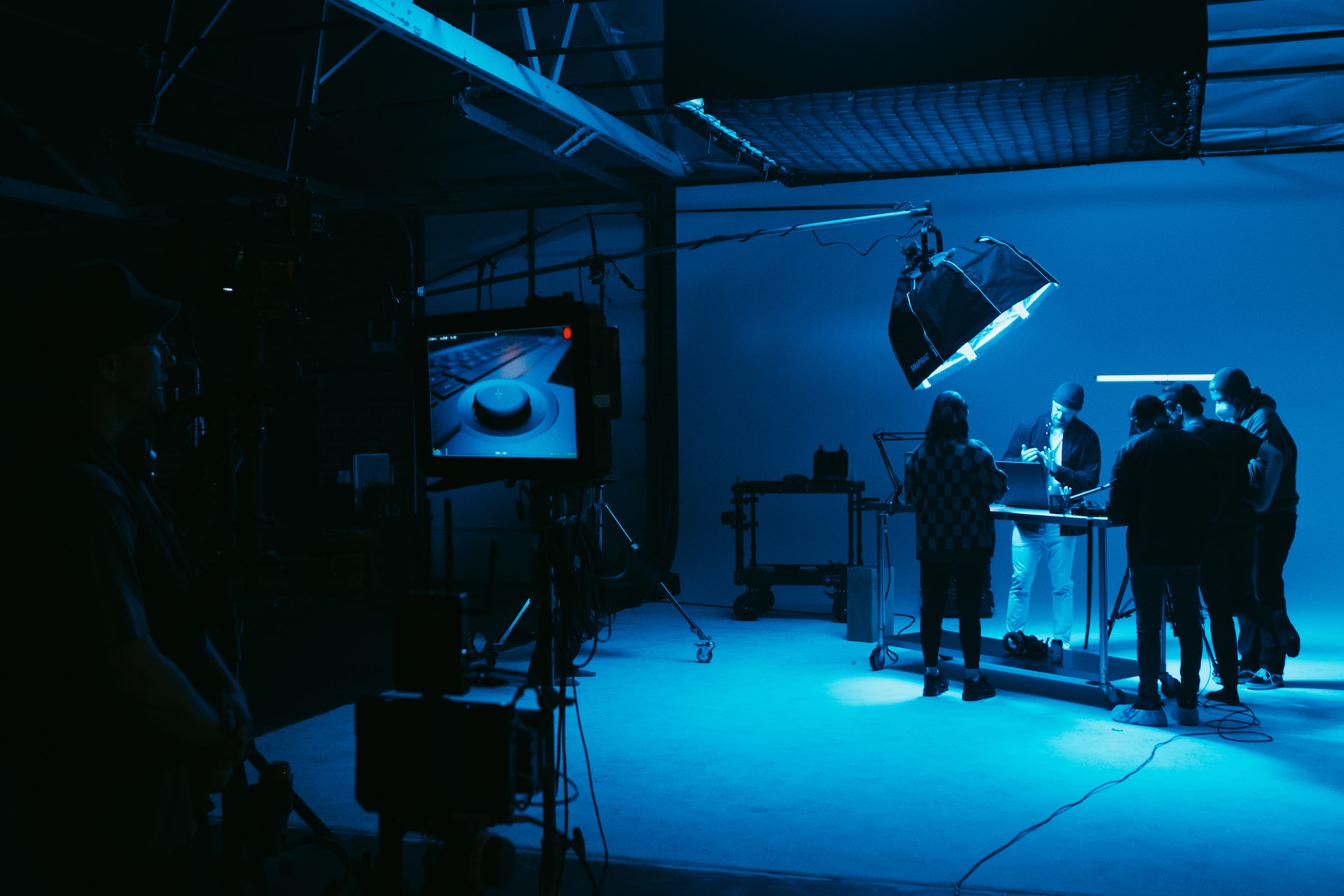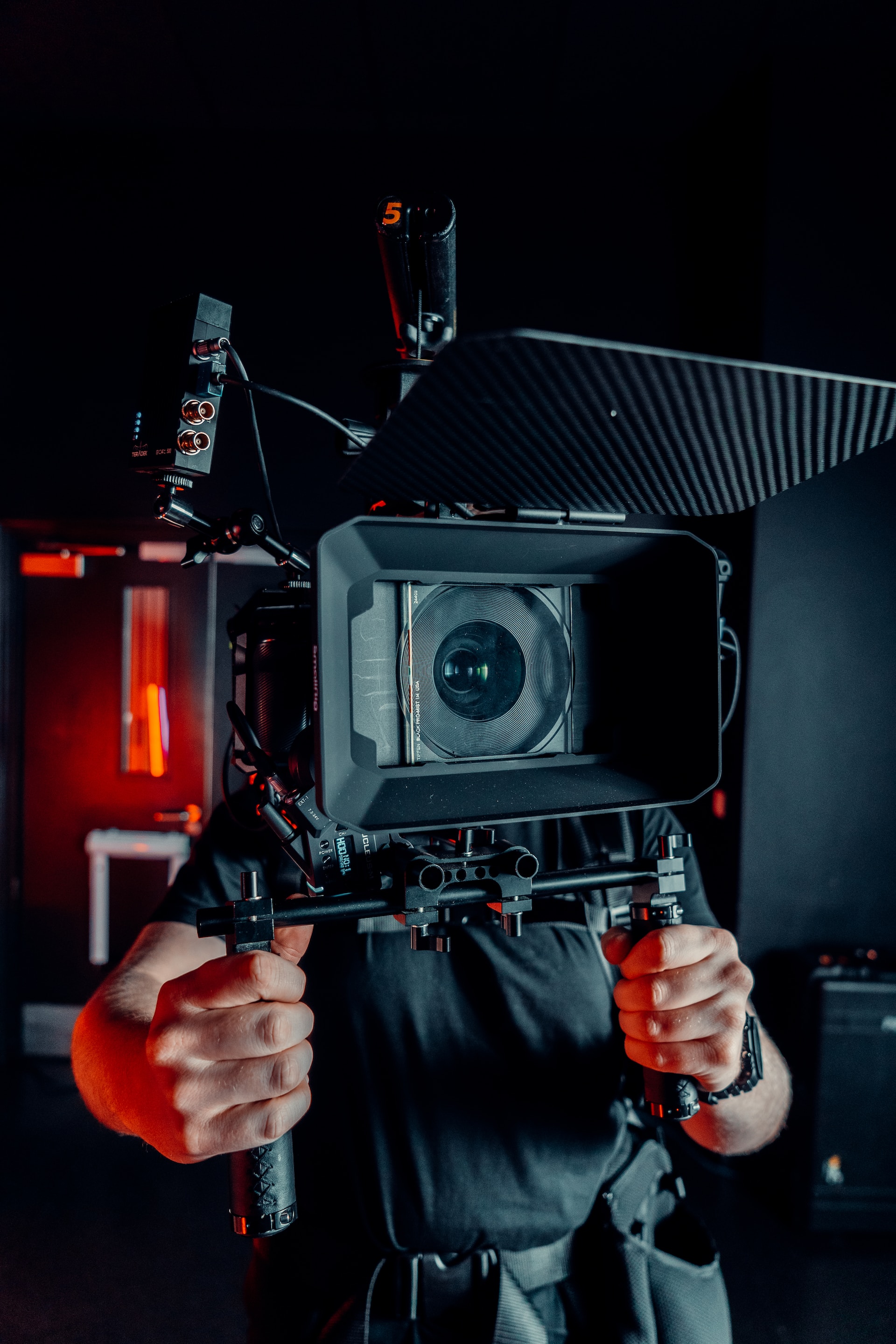Alexander Perfiliev has an impressive resume. Some people have known him as Dee-Jay P. Rock (or PARTYSTARK) since the early 2010s, while others work closely with him as a music producer. As of this year, aspiring artists also have the opportunity to collaborate with Alexander through the express residency program “Music Factory.”
In our interview we discussed various aspects of the modern music industry — from why a vinyl record can now be equated to a T-shirt, to whether one should fear AI. And, of course, addressed the burning question: should the young and bold ones listen to their elders?
Tell us about your professional journey. What moments do you consider the most significant?
I entered music through dance: in 2006 I started breakdancing. Soon I also wanted to play music and by 2009 I was performing as a hip-hop DJ. My DJ career has taken me to over half the world, especially at breaking championships and festivals. Naturally, this allowed me to meet fascinating people—from the legendary singer Dido to French DJs who composed the Taxi movie soundtrack.
By late 2011 I decided to start producing and writing my own music to grow professionally.
As for the most significant moments, I recall recording my first international track in the U.S. at 25 in 2017. In 2019 I released about 4 records on vinyl, one of which was an EP featuring the legendary American rap group Onyx.
For the past five years, I’ve also worked at Red Bull Media House, which handles audio (and other) content for Red Bull. Together with my colleague, South DJ Scream, we oversee the dance music direction for Red Bull BC One, the world’s premier breaking championship. We produce albums for the championship and create special instrumental tracks that DJs can use during broadcasts without fear of copyright infringement.

You started as a DJ, but is such a background essential for a sound engineer or music producer?
It’s a fundamental basis that significantly contributed to my growth as a music producer and sound engineer. DJing is primarily about digging—listening to tens of thousands of tracks to find that one diamond for the dance floor or a mixtape. A DJ's job is to pick the best. This hones your musical “ear,” a critical habit without which professional success is impossible.
How often do music professionals switch roles? Is it essential for career growth or more about individual preferences?
When a music producer ventures into sound engineering, or vice versa, it’s both a personal trait and an aspect of career development. We live in an era where professionals must be multi-skilled. Fifteen to twenty years ago, specializing in one thing was enough, but now, understanding multiple facets is crucial. I believe this is the right approach. The world is accelerating, and we need to deepen our knowledge to keep pace and avoid burnout.
What attracted you to the “Music Factory” project? What’s it about for those unfamiliar?
Each residency gathers ten teams, each consisting of a music producer, an artist, and a manager. The idea is to immerse these relatively inexperienced participants in the realities of the music industry: tight deadlines, high-stakes tasks, etc. Over nine days (the active phase), they must create a track, develop the artist’s positioning, prepare a playback for a final pitch concert, and submit the track for streaming platform moderation—all without missing deadlines. Aesthetically, efficiently, and without sacrificing health. The entire project lasts about a month, including track finalization and a concert at the 16 Tons club. Participants develop both hard and soft skills.
Initially, I was drawn to the people, particularly Maria Melnikova from the band Masha Maria. She is the creative producer of “Music Factory”. She also invited me to be the lead curator for the music production direction (this year, I participated in three residencies). Such projects skillfully teach people to combine business with the art of music. Striking the balance between mathematics and the occult-mystical creative process is the most challenging part of the industry. Creators are usually strong in one area or the other. However, those who succeed are typically the ones who can masterfully integrate these operational tasks.
What also draws me in is the team of professionals behind the project: Maria, the project’s founder Maxim Chumin, the process curators, and the management team. These are people who prioritize creating a positive team atmosphere, which is crucial. They have managed to set up processes in such a way that toxicity is reduced to zero, allowing the team to accomplish a massive workload while maintaining the highest level of quality, even under extremely tight deadlines.
Do you see generational differences in approach, thinking, and work ethic between younger and more experienced musicians?
I work extensively with representatives from various musical backgrounds, though not as often with beginners. For instance, at "Music Factory," about 80% of participants are what I personally call "mid-level emerging" artists.
Of course, generational differences do exist. When you collaborate with artists who made waves in the '90s or 2000s, you notice they bring more experience and fundamentally different approaches to creating music content, with distinct ways of thinking. It's a natural progression—generations change, technologies evolve, and so does the sound itself.
However, when it comes to work ethics, it’s less about generations and more about the individual—their upbringing and personal discipline. This all comes with experience. I've encountered 20-year-old artists with extensive expertise and well-honed approaches to work, and I’ve known 30-year-olds who struggle in these areas. Each case is unique by its very nature.
Should young artists look up to the "elders," or is every path unique?
Everyone has their own path. But disregarding those before you or thinking it doesn’t matter is wrong—especially in music culture. Respect your predecessors, particularly those who inspired you. Like in cinema, you can watch, draw inspiration, and express it differently. What came before is knowledge and experience that you can reinterpret or not, but it remains a foundation.
How has the approach to sound recording changed over time? Can you compare your workday now to 15 years ago?
Technology has advanced tremendously. Back then we had different computers and audio interfaces. Fifteen years ago there was a greater emphasis on professional equipment, and working in informal, often home-based setups (bedroom producing) was much less common. Today it's possible to set up a decent and high-quality production without leaving home—if you know how to do it properly.
As for me personally, I’ve always aimed to work in professional recording studios worldwide, and that hasn’t changed over the past 15 years. For me, it’s primarily about comfort and ensuring I’m accurately hearing what I’m working with, regardless of the modern technologies available, like headphone correction plugins and so on.
And, of course, the pace has changed dramatically over 15 years. Things were slower back then—not just in music but in the world overall.
Some projects were prepared specifically for vinyl release. Is it important to consider this during the production process, especially with the current vinyl boom? After all, not all releases were originally designed with vinyl in mind.
No, it’s not something you need to consider right from the start. This is something to address during the mastering stage. At that point, you’ll need two master files: one for digital platforms and another for vinyl, as the latter is typically adjusted to account for a narrower frequency range.
Do you feel that young artists are particularly focused on physical formats?
I don’t see that. Mainly because it’s expensive. Vinyl is more like elite merchandise—not everyone has the means to listen to it. It’s comparable to buying a T-shirt, hoodie, or poster—a tangible way to connect with the music.
Vinyl also offers artists greater creative freedom. They can include special inserts with photos and commentary, print records in various colors, or design custom art sleeves. Aesthetically, it’s far more engaging than just an album cover on a streaming service, but it’s also more challenging, no doubt about it.

How do you interact with AI tools?
Honestly, I don’t. I haven’t needed to yet, and I haven’t found anything fundamentally new in AI that’s relevant to my work. Although, I’ve used neural networks a couple of times to separate acapella from instrumentals, and I was satisfied with the results.
For me, AI is primarily a tool used by humans. As a colleague of mine put it: “Artificial intelligence is a way to answer a question and fulfill a request.” But the questions and requests still come from people, at least for now. I think the AI phenomenon will be more actively discussed and analyzed in about five years. For now, I rely more on human resources.
Top 5 tips/wisdom for aspiring producers and sound engineers:
1. One of the golden rules for any music producer, mixing, or mastering engineer: "If it's not broken, don’t fix it!"
2. Perfectionism is the first thing that will kill your desire to create.
3. The most important thing to avoid when working with other creators in the same studio space is ego. In other words: DON’T BE AN ASSHOLE!
4. The Sound Warrior's path is, first and foremost, a journey. And you should walk it with dignity.
5. As Kanye West once said: "Nothing in this life is promised – except death!" Keep that in mind, and respect both your own journey and the journey of your fellow creative colleagues. Love your "musical kung fu" and try to be wise.
And a couple of questions from our readers. Do you like phonk?
I definitely respect the genre. But I'm more into the original phonk (DJ Screw, THREE 6 MAFIA, Spanish Fly…), rather than what is commonly referred to as phonk today (though it’s certainly dominating the charts). It's become a reworked substance now. But I don’t want to judge – this is purely my subjective perspective, whether I like it or not.
How often do you work as a music producer? How do you achieve a dense, rich sound when recording instruments and vocals, so that the sound is almost ready?
Being a music producer is my full-time job.
For recording vocals, my favorite setup is the Neumann U87 + GOODFLY 1073 (or the original NEVE 1073) + RETRO COMPRESSOR (or the classic LA-2A). But it’s all very situational, and the setup can change completely depending on the tone of the particular artist.
As for recording instruments, everything is definitely very individual. It depends on the instrument and how much time you have for “experimenting” with the sound.
Text by Michael Agafonov

